Jade Varden's Blog, page 32
June 25, 2014
Writing 101: Asking for Reviews
Indie authors have to promote their books all the time. They spend time on social media, they browse forums, they blog. But as an indie author, you should also be asking for reviews -- every chance you get.
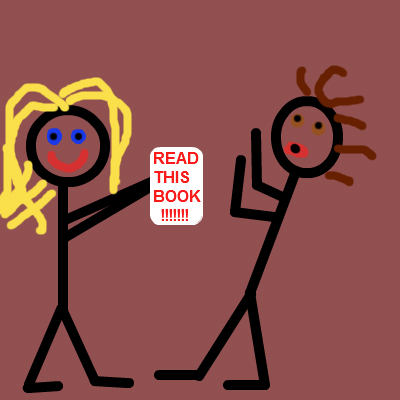
Soliciting
Indies have to court the book bloggers, and it's a great way to get reviews. Keep sending your requests out every week. Keep using forums to find potential reviewers and swap opportunities, if you do swapping. But don't stop there. If you want to get reviews, start asking for them:
On Twitter: Nothing's wrong with a friendly reminder. Give occasional shout outs on Twitter, reminding your readers to give you reviews if they haven't already. Make it easy for thrm by including links. In the book: Include a little note at the end of your books, encouraging readers to review it. Take it one step further. In your ebooks, include links so they can simply click their way to a review. Through forums: Don't just browse forums looking for people who review books. Write posts asking for reviewers. You'll see authors doing this all the time. They do it because it works, so don't be shy. Use a polished pitch and include all necessary links. Always make it as easy as possible for them to give you what you want. After giveaways: Giving books away is a good promotional tool that lots of Indies use. Don't let it go to waste. With every copy you give, include a little note in the email asking giveaway winners to review the book if they can.
There's an old saying that it never hurts to ask, so start asking. If you want reviews and you're the only person promoting your book, you're probably going to have to go out there and solicit to get those reviews. So get out there.

Soliciting
Indies have to court the book bloggers, and it's a great way to get reviews. Keep sending your requests out every week. Keep using forums to find potential reviewers and swap opportunities, if you do swapping. But don't stop there. If you want to get reviews, start asking for them:
On Twitter: Nothing's wrong with a friendly reminder. Give occasional shout outs on Twitter, reminding your readers to give you reviews if they haven't already. Make it easy for thrm by including links. In the book: Include a little note at the end of your books, encouraging readers to review it. Take it one step further. In your ebooks, include links so they can simply click their way to a review. Through forums: Don't just browse forums looking for people who review books. Write posts asking for reviewers. You'll see authors doing this all the time. They do it because it works, so don't be shy. Use a polished pitch and include all necessary links. Always make it as easy as possible for them to give you what you want. After giveaways: Giving books away is a good promotional tool that lots of Indies use. Don't let it go to waste. With every copy you give, include a little note in the email asking giveaway winners to review the book if they can.
There's an old saying that it never hurts to ask, so start asking. If you want reviews and you're the only person promoting your book, you're probably going to have to go out there and solicit to get those reviews. So get out there.
Published on June 25, 2014 05:30
June 24, 2014
Writing 101: There Is vs. There Are
Figuring out the correct use of the word there gets confusing enough, but when you start adding verbs it can become a grammatical nightmare. Do you know how to use there is and there are the correct way? Don't answer too fast. I thought I knew how to use them, too, until I caught myself making the same mistake over and over again.
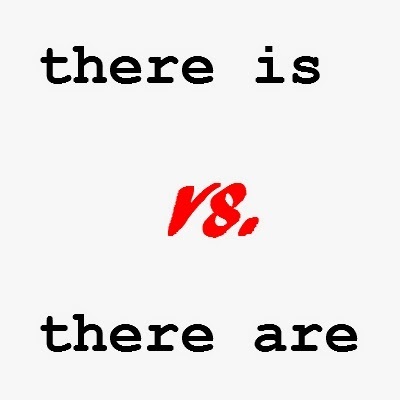
To Be or Not to Be
Why is it so hard to know the difference between there is and there are? For starters, is and are are both forms of the same irregular verb, and nothing's worse than irregular verbs. They're both forms of the verb to be. For example, I might say that Sheila is pretty, or that We are polite. Both sentences use a form of be (Sheila be pretty; We be polite).
Confused yet? If you weren't confused about there is and there are before this post, you probably are now so my job is half done already. But I'm also going to get it all cleared up.
If you know how to use the verb to be, you'll get this right most of the time. The rules are always the same, and they aren't too hard to follow.
Is should be used for single items, persons or places. For example: There is a pretty girl. There is a brown house on the corner. There is no way to get there from here.
But you also use is for group or collective nouns. For example: There is soup in the cabinet. There is cheese in the fridge. There is grass in my shoe.
And that leaves there are, which is used only with plurals. Example: There are candy wrappers all over this table. There are three people standing outside your office. There are several reasons why I can't say that. These are the basic differences between there is and there are, but sometimes it gets tricky even when you don't know the rules. Sometimes, plurals look more like singles. Take a look at some tricky examples:
There is a flock of seagulls overhead!
Now, I know what you're thinking: that I'm wrong. But I'm not. Seagulls is obviously plural, but the word flock is a collective noun. And with collective nouns, as we know, there is must be used. Remember that the verb goes to the main noun in the sentence. And in this example, we're referencing the flock specifically.
There are ninety anxious geese outside.
We're using there are here because the word ninety is plural. This one is tricky, but easy once you remember that any number above one is plural. Even if you eliminate that descriptor, the sentence would still be correct:
There are anxious geese outside.
The word geese is plural. It's one of those weird words that doesn't need an s to become plural, so that's tricky. Just remember the same rule to get it right every time: if the sentence has more than one, you've got to use there are to write it.
Knowing how to use there is and there are is one of the finer points of grammar, but one you absolutely have to master as an indie author. Get it right, and all of your writing will be more polished and precise.

To Be or Not to Be
Why is it so hard to know the difference between there is and there are? For starters, is and are are both forms of the same irregular verb, and nothing's worse than irregular verbs. They're both forms of the verb to be. For example, I might say that Sheila is pretty, or that We are polite. Both sentences use a form of be (Sheila be pretty; We be polite).
Confused yet? If you weren't confused about there is and there are before this post, you probably are now so my job is half done already. But I'm also going to get it all cleared up.
If you know how to use the verb to be, you'll get this right most of the time. The rules are always the same, and they aren't too hard to follow.
Is should be used for single items, persons or places. For example: There is a pretty girl. There is a brown house on the corner. There is no way to get there from here.
But you also use is for group or collective nouns. For example: There is soup in the cabinet. There is cheese in the fridge. There is grass in my shoe.
And that leaves there are, which is used only with plurals. Example: There are candy wrappers all over this table. There are three people standing outside your office. There are several reasons why I can't say that. These are the basic differences between there is and there are, but sometimes it gets tricky even when you don't know the rules. Sometimes, plurals look more like singles. Take a look at some tricky examples:
There is a flock of seagulls overhead!
Now, I know what you're thinking: that I'm wrong. But I'm not. Seagulls is obviously plural, but the word flock is a collective noun. And with collective nouns, as we know, there is must be used. Remember that the verb goes to the main noun in the sentence. And in this example, we're referencing the flock specifically.
There are ninety anxious geese outside.
We're using there are here because the word ninety is plural. This one is tricky, but easy once you remember that any number above one is plural. Even if you eliminate that descriptor, the sentence would still be correct:
There are anxious geese outside.
The word geese is plural. It's one of those weird words that doesn't need an s to become plural, so that's tricky. Just remember the same rule to get it right every time: if the sentence has more than one, you've got to use there are to write it.
Knowing how to use there is and there are is one of the finer points of grammar, but one you absolutely have to master as an indie author. Get it right, and all of your writing will be more polished and precise.
Published on June 24, 2014 05:30
June 23, 2014
Writing 101: Heroes and Anti-Heroes
Many stories are basic at the core: hero vs. villain, good vs. evil. But life isn't always so black and white...so books can't be, either. Not all main characters are heroic. Some, in fact, are just the opposite.
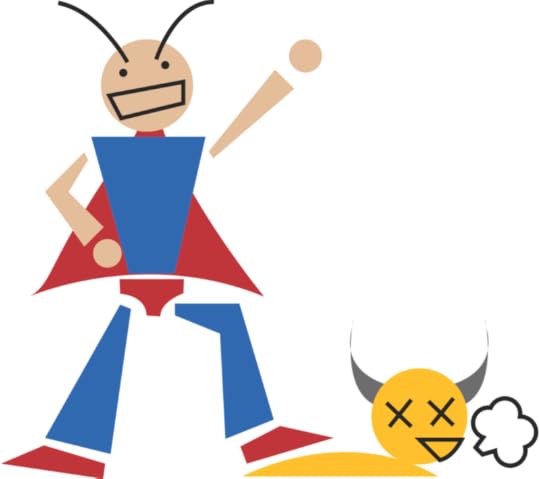
Bette Davis Eyes
In literature, heroes are good guys. They are honest, or noble, unselfish maybe, and caring of others. They're designed to be lovable.
Not so with the anti-hero. This character is barely likable. They make bad decisions and wrong choices. They lack admirable qualities and maybe even do really dumb things.
The big trick is getting readers to enjoy their exploits anyway. But in a lot of ways, it's easier for readers to identify with anti-heroes. They make mistakes and do dumb things, just like the rest of us.
Heroes, on the other hand, do the right thing. They don't always walk the path of least resistance. They make hard choices and save the day.
And that can get annoying. This is why authors caution other authors to give their characters flaws. It's easy to like and admire heroes, but not necessarily easy to relate to them.
The best characters are complicated. They have some heroic traits, but sometimes they do the stuff you find in anti-heroes. Blend both character types together to create a main character who is complicated, relatable, likable and entertaining. Do that, and you've got a great book.

Bette Davis Eyes
In literature, heroes are good guys. They are honest, or noble, unselfish maybe, and caring of others. They're designed to be lovable.
Not so with the anti-hero. This character is barely likable. They make bad decisions and wrong choices. They lack admirable qualities and maybe even do really dumb things.
The big trick is getting readers to enjoy their exploits anyway. But in a lot of ways, it's easier for readers to identify with anti-heroes. They make mistakes and do dumb things, just like the rest of us.
Heroes, on the other hand, do the right thing. They don't always walk the path of least resistance. They make hard choices and save the day.
And that can get annoying. This is why authors caution other authors to give their characters flaws. It's easy to like and admire heroes, but not necessarily easy to relate to them.
The best characters are complicated. They have some heroic traits, but sometimes they do the stuff you find in anti-heroes. Blend both character types together to create a main character who is complicated, relatable, likable and entertaining. Do that, and you've got a great book.
Published on June 23, 2014 05:30
June 22, 2014
Indie News: Is Amazon Being a Bully?
Is it still cyberbullying when it's perpetrated by a mega-million-dollar corporation? Maybe. Lots of self-published authors are weighing in on the debate between Amazon and traditional publishing, represented in this particular dispute by Hachette. So let's examine the issue and ask the hard question: is Amazon being a bully?
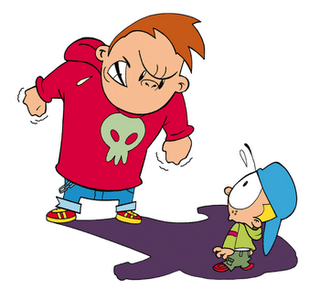
Goliath and Goliath
Believe me, I get it. Defending Amazon, and anything they do, has become a bit of a knee-jerk reaction for indie authors. Amazon gave them a platform, a voice and for a few, millions of bucks. So it's easy to jump to Amazon's defense, particularly when one hears that they're in a good old-fashioned standoff with publishing giant Hachette. Put in that context, I almost want to grab a pitchfork myself.
But that's just one facet of this complicated mess that's being carried out right now, this very moment. Amazon and Hachette did not see eye-to-eye on the price of ebooks. The two companies could not agree on how to split the profits. Amazon wanted to give more money to the authors, and Hachette said no let's give them even more than that.
Yes, that was a joke. No one is talking about giving any money to the authors who did the actual work; please don't be ridiculous. No, Hachette and Amazon both wanted a bigger piece of the ebook revenue and Hachette wouldn't back down on the sum they wanted.
So Amazon took it to the mattresses. If you don't know what that's about, shame on you. Go watch The Godfather and get back to me. The point is, Amazon decided to make a thing out of it. And now...well, it's a really big thing.
Because Amazon started using strongarm tactics to get their way. Prices on Hachette books have been raised. Shipping has been delayed. Pre-order buttons on Hachette books have mysteriously disappeared (detectives needed). And Amazon has taken it so far, they're getting national media coverage for these bully techniques. They even started promoting cheaper "similar books," offered through different publishers of course, on listings for Hachette books.
Amazon hasn't backed down despite blistering coverage from the likes of The New York Times and late night's Stephen Colbert (who happens to be a Hachette author), proving that the company is more than willing to take a few ugly op-ed pieces on the chin...if it means getting bigger ebook revenues from this one publisher. They've taken a stand, and it bodes ill for the future.
Especially when you consider that Amazon already makes more money from ebooks than anyone else. But at the same time, more money for Hachette? How funny that they should fight for that, when it's very likely that many of their authors make 10% or less in royalties.
So is Amazon being a bully? Probably. But before this, publishers were a little bit like bullies, too. That doesn't make it okay for Amazon to deny equal selling and distribution rights, and whether or not their tactics are bullyish is a moot point anyway.
If Amazon can use this kind of force on Hachette, Amazon can use this kind of force on anyone. That's why Amazon has to be stopped.

Goliath and Goliath
Believe me, I get it. Defending Amazon, and anything they do, has become a bit of a knee-jerk reaction for indie authors. Amazon gave them a platform, a voice and for a few, millions of bucks. So it's easy to jump to Amazon's defense, particularly when one hears that they're in a good old-fashioned standoff with publishing giant Hachette. Put in that context, I almost want to grab a pitchfork myself.
But that's just one facet of this complicated mess that's being carried out right now, this very moment. Amazon and Hachette did not see eye-to-eye on the price of ebooks. The two companies could not agree on how to split the profits. Amazon wanted to give more money to the authors, and Hachette said no let's give them even more than that.
Yes, that was a joke. No one is talking about giving any money to the authors who did the actual work; please don't be ridiculous. No, Hachette and Amazon both wanted a bigger piece of the ebook revenue and Hachette wouldn't back down on the sum they wanted.
So Amazon took it to the mattresses. If you don't know what that's about, shame on you. Go watch The Godfather and get back to me. The point is, Amazon decided to make a thing out of it. And now...well, it's a really big thing.
Because Amazon started using strongarm tactics to get their way. Prices on Hachette books have been raised. Shipping has been delayed. Pre-order buttons on Hachette books have mysteriously disappeared (detectives needed). And Amazon has taken it so far, they're getting national media coverage for these bully techniques. They even started promoting cheaper "similar books," offered through different publishers of course, on listings for Hachette books.
Amazon hasn't backed down despite blistering coverage from the likes of The New York Times and late night's Stephen Colbert (who happens to be a Hachette author), proving that the company is more than willing to take a few ugly op-ed pieces on the chin...if it means getting bigger ebook revenues from this one publisher. They've taken a stand, and it bodes ill for the future.
Especially when you consider that Amazon already makes more money from ebooks than anyone else. But at the same time, more money for Hachette? How funny that they should fight for that, when it's very likely that many of their authors make 10% or less in royalties.
So is Amazon being a bully? Probably. But before this, publishers were a little bit like bullies, too. That doesn't make it okay for Amazon to deny equal selling and distribution rights, and whether or not their tactics are bullyish is a moot point anyway.
If Amazon can use this kind of force on Hachette, Amazon can use this kind of force on anyone. That's why Amazon has to be stopped.
Published on June 22, 2014 05:30
June 21, 2014
Books on Film: Pollyanna
Pollyanna is a hundred-year-old book, but it's a classic story that left a mark you can still find in pop culture today. As you may know, Pollyanna has become synonymous with any overly-optimistic person who sees only sunshine no matter how much rain there is, a sheer goody-goody who always has something nice to say. But before it was a term to tease your friends with, it was one of the most memorable literary characters ever to grace a page.
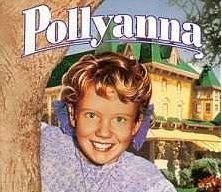
The Book
Eleanor H. Porter wrote Pollyanna way back in 1913. It became so popular it launched an entire series of "Glad Books," and if you know the character you understand the title.
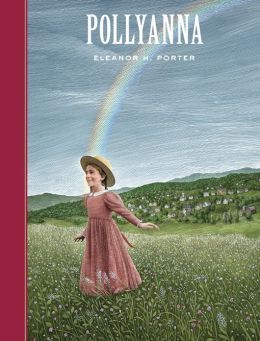
The titular character Pollyanna Whittier has been newly orphaned and sent to a small town in Vermont called Beldingsville. She's going to live with her rich Aunt Polly, an old maid who never had children and certainly does not want one in the house. Of course, Aunt Polly hasn't much choice sister her sister is dead and the child has nowhere to go.
If having Pollyanna wasn't bad enough, she incessantly talks about being glad. She plays a game called "the glad game" in which she finds the positive side of everything. It's optimism she learned from her father, and it's boundless. Pollyanna doesn't even see her aunt's cruelty because of her own positive nature. She's shoved into an attic bedroom with little adornment, and revels in having her own room to herself. She gets punished with a meal of bread and milk, but relishes the food and the company she gets to keep in the kitchen.
Aunt Polly is not won over, but slowly the rest of the New Englanders in town are. Pollyanna begins playing her game with some of the town's troubled souls, including the lonely Mrs. Snow and the grouchy Mr. Pendleton.
But it's not all sunshine and roses for Pollyanna, who gets hit by a car accidentally. This results in a traumatic injury that inhibits the use of Pollyanna's legs.
This does manage to dampen her sunny spirit, and Pollyanna ends up lying in bed feeling no gladness at all. The townsfolk begin to show up at the house, however, having heard about the accident.
It's a children's book, so of course it all ends happily. Aunt Polly stops being an old maid and Pollyanna does walk again. You'll want that info, because if you watch the movie (and I beg of you to do so) you're probably going to cry. The movie ends differently, but on the page Pollyanna does walk again.
Eleanor H. Porter only wrote two books about the spunky heroine. Pollyanna Grows Up followed...and then things sort of got out of hand. Four other writers penned Glad Books. So far, there are 13. Littleton, New Hampshire, hometown of the author, built a bronze statue of Pollyanna. They also have an "Official Pollyanna Glad Day" every single summer.
The Movie
Pollyanna is such a popular character, she became a part of pop culture and she's stayed there. The various adaptations of her story have helped to keep her alive for a century. The BBC made a TV serial of her story in 1973, and there was a TV series in 1986. Another TV film was made as recently as 2003.
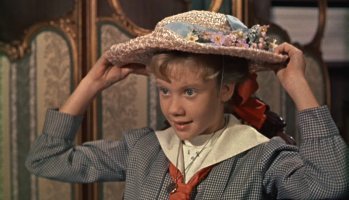
But when you're talking Pollyanna, there's really only one adaptation that matters: the 1960 film. Critics openly mocked Disney for making the flick, based on a book that was already old even in that bygone era. The best thing Disney did with the film was cast Hayley Mills, who would go on to make 5 more movies for the studio.
Her charm is definitely on display in the film, which also stars Jane Wyman (the former Mrs. Ronald Reagan) as Aunt Polly and Karl Malden as the town preacher.
The setup to the movie is the same as the book. Polly's house is grander, the attic room is stuffier and Pollyanna's clothes are every bit as ugly as described. The town's name is changed to Harrington to reflect Aunt Polly Harrington's influence in the community.
That influence shows up early after a fire at the orphanage brings the entire town together in the Harrington home. Here we meet Aunt Polly's former boyfriend, the handsome Dr. Chilton, newly-returned to town. The townsfolk want to raise their own funds for the orphanage, instead of taking money from Polly as usual, and Chilton earns her wrath when he openly agrees with them.
They plan a festival in order to raise the money on their own, and Polly is so infuriated she refuses to let Pollyanna participate. It's wasted energy, of course, because Pollyanna is right in the middle of all of it.
The movie features brilliant performances from the main cast and amazing supporting actors, including Agnes Morehead as Mrs. Snow (she's fantastic). Every scene with Malden in it is electric, particularly when he's screaming at the town from his high pulpit. The film is gorgeously put together with bright colors that practically leap off the screen, stunning sets and a perfectly detailed wardrobe. It's one of my all-time favorites, and I suggest that everyone watch it at least once.
The film was not commercially successful for Disney, but the powerhouse performance of Hayley Mills earned her a special Oscar. She won an Academy Juvenile Award in 1960.
What Got Adapted?
Disney took the time to make Pollyanna a long feature-length movie, and spared no expense in the way of set design or costuming. And yet, true to form, Disney changed plenty of stuff unnecessarily from the original story. Leave it to Disney to do that every single time. But before I go off on one of my favorite rants, let's talk about just this book.
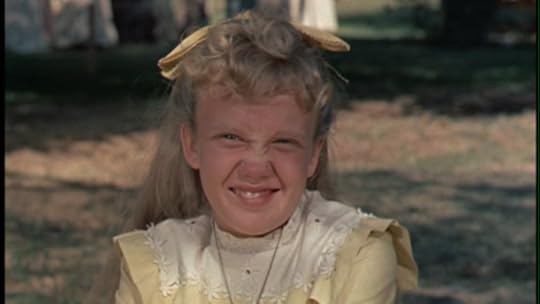
Whole personalities are changed for the sake of the film, and characters are added and taken away at will. Housemaid Nancy's boyfriend George was invented wholly for the movie. Dr. Chilton's name and personality are changed, and the same is true for Mr. Pendleton. Polly and Chilton are older in the movie, possibly because Disney wanted Wyman for the role and she was older. In the film, Dr. Chilton has been living away from Harrington but in the book he's been in town for a while.
In the movie, Pollyanna isn't hit by a car. She falls from a tree while sneaking into her room coming home from the festival. This carries with it an implicit moral warning: you shouldn't have snuck out of the house.
Nancy is quite different in the film, where she is polished and clever. Nancy is uneducated and a little silly in the book. Aunt Polly doesn't have such an iron fist in the book, and certainly doesn't control the entire town. There is also no festival. The cook Tillie and the maid Angelica are invented entirely for the movie, as are several other townspeople.
But despite the changes, or maybe because of them, Pollyanna is an exceptional movie. So read the book, watch the movie and compare them for yourself. Don't cry! She'll be okay in the end.

The Book
Eleanor H. Porter wrote Pollyanna way back in 1913. It became so popular it launched an entire series of "Glad Books," and if you know the character you understand the title.

The titular character Pollyanna Whittier has been newly orphaned and sent to a small town in Vermont called Beldingsville. She's going to live with her rich Aunt Polly, an old maid who never had children and certainly does not want one in the house. Of course, Aunt Polly hasn't much choice sister her sister is dead and the child has nowhere to go.
If having Pollyanna wasn't bad enough, she incessantly talks about being glad. She plays a game called "the glad game" in which she finds the positive side of everything. It's optimism she learned from her father, and it's boundless. Pollyanna doesn't even see her aunt's cruelty because of her own positive nature. She's shoved into an attic bedroom with little adornment, and revels in having her own room to herself. She gets punished with a meal of bread and milk, but relishes the food and the company she gets to keep in the kitchen.
Aunt Polly is not won over, but slowly the rest of the New Englanders in town are. Pollyanna begins playing her game with some of the town's troubled souls, including the lonely Mrs. Snow and the grouchy Mr. Pendleton.
But it's not all sunshine and roses for Pollyanna, who gets hit by a car accidentally. This results in a traumatic injury that inhibits the use of Pollyanna's legs.
This does manage to dampen her sunny spirit, and Pollyanna ends up lying in bed feeling no gladness at all. The townsfolk begin to show up at the house, however, having heard about the accident.
It's a children's book, so of course it all ends happily. Aunt Polly stops being an old maid and Pollyanna does walk again. You'll want that info, because if you watch the movie (and I beg of you to do so) you're probably going to cry. The movie ends differently, but on the page Pollyanna does walk again.
Eleanor H. Porter only wrote two books about the spunky heroine. Pollyanna Grows Up followed...and then things sort of got out of hand. Four other writers penned Glad Books. So far, there are 13. Littleton, New Hampshire, hometown of the author, built a bronze statue of Pollyanna. They also have an "Official Pollyanna Glad Day" every single summer.
The Movie
Pollyanna is such a popular character, she became a part of pop culture and she's stayed there. The various adaptations of her story have helped to keep her alive for a century. The BBC made a TV serial of her story in 1973, and there was a TV series in 1986. Another TV film was made as recently as 2003.

But when you're talking Pollyanna, there's really only one adaptation that matters: the 1960 film. Critics openly mocked Disney for making the flick, based on a book that was already old even in that bygone era. The best thing Disney did with the film was cast Hayley Mills, who would go on to make 5 more movies for the studio.
Her charm is definitely on display in the film, which also stars Jane Wyman (the former Mrs. Ronald Reagan) as Aunt Polly and Karl Malden as the town preacher.
The setup to the movie is the same as the book. Polly's house is grander, the attic room is stuffier and Pollyanna's clothes are every bit as ugly as described. The town's name is changed to Harrington to reflect Aunt Polly Harrington's influence in the community.
That influence shows up early after a fire at the orphanage brings the entire town together in the Harrington home. Here we meet Aunt Polly's former boyfriend, the handsome Dr. Chilton, newly-returned to town. The townsfolk want to raise their own funds for the orphanage, instead of taking money from Polly as usual, and Chilton earns her wrath when he openly agrees with them.
They plan a festival in order to raise the money on their own, and Polly is so infuriated she refuses to let Pollyanna participate. It's wasted energy, of course, because Pollyanna is right in the middle of all of it.
The movie features brilliant performances from the main cast and amazing supporting actors, including Agnes Morehead as Mrs. Snow (she's fantastic). Every scene with Malden in it is electric, particularly when he's screaming at the town from his high pulpit. The film is gorgeously put together with bright colors that practically leap off the screen, stunning sets and a perfectly detailed wardrobe. It's one of my all-time favorites, and I suggest that everyone watch it at least once.
The film was not commercially successful for Disney, but the powerhouse performance of Hayley Mills earned her a special Oscar. She won an Academy Juvenile Award in 1960.
What Got Adapted?
Disney took the time to make Pollyanna a long feature-length movie, and spared no expense in the way of set design or costuming. And yet, true to form, Disney changed plenty of stuff unnecessarily from the original story. Leave it to Disney to do that every single time. But before I go off on one of my favorite rants, let's talk about just this book.

Whole personalities are changed for the sake of the film, and characters are added and taken away at will. Housemaid Nancy's boyfriend George was invented wholly for the movie. Dr. Chilton's name and personality are changed, and the same is true for Mr. Pendleton. Polly and Chilton are older in the movie, possibly because Disney wanted Wyman for the role and she was older. In the film, Dr. Chilton has been living away from Harrington but in the book he's been in town for a while.
In the movie, Pollyanna isn't hit by a car. She falls from a tree while sneaking into her room coming home from the festival. This carries with it an implicit moral warning: you shouldn't have snuck out of the house.
Nancy is quite different in the film, where she is polished and clever. Nancy is uneducated and a little silly in the book. Aunt Polly doesn't have such an iron fist in the book, and certainly doesn't control the entire town. There is also no festival. The cook Tillie and the maid Angelica are invented entirely for the movie, as are several other townspeople.
But despite the changes, or maybe because of them, Pollyanna is an exceptional movie. So read the book, watch the movie and compare them for yourself. Don't cry! She'll be okay in the end.
Published on June 21, 2014 05:30
June 19, 2014
Writing 101: Finish it First
Often, authors feel insecurity. You'll doubt, and second-guess, and wonder...and you'll worry. And I know it's tempting to share ideas, plot points, even whole chapters with close confidants. But you shouldn't. If you're writing a manuscript, wait to share it. Finish it first.

Other People's Opinions
Even authors are only human, and you're going to be influenced by other people. In fact, as an author you should be. Reviews are most beneficial not to readers but to authors. They provide honest feedback, and that's what every author needs.
That's why it seems like such a good idea to solicit advice from those closest to you. But if you start getting that advice before the book is done, it's could change the course of your story. You could be influenced by others, and then it's not wholly your story anymore.
I'm not saying you should give up your beta readers. But you should finish the manuscript before you hand it over. Make sure that if you're going to receive criticism, you're getting it for something that's totally yours.
Finish, yes, but be open to that feedback you receive. Bets readers are a good idea, and sometimes you will need to make changes. Sometimes, you do need to be influenced. Just wait until your early readers can get the whole picture first.

Other People's Opinions
Even authors are only human, and you're going to be influenced by other people. In fact, as an author you should be. Reviews are most beneficial not to readers but to authors. They provide honest feedback, and that's what every author needs.
That's why it seems like such a good idea to solicit advice from those closest to you. But if you start getting that advice before the book is done, it's could change the course of your story. You could be influenced by others, and then it's not wholly your story anymore.
I'm not saying you should give up your beta readers. But you should finish the manuscript before you hand it over. Make sure that if you're going to receive criticism, you're getting it for something that's totally yours.
Finish, yes, but be open to that feedback you receive. Bets readers are a good idea, and sometimes you will need to make changes. Sometimes, you do need to be influenced. Just wait until your early readers can get the whole picture first.
Published on June 19, 2014 05:30
June 18, 2014
Writing 101: Desire
What do you want? Chances are, you've got at least one answer to that question. Everyone wants something. That means your characters should, too.
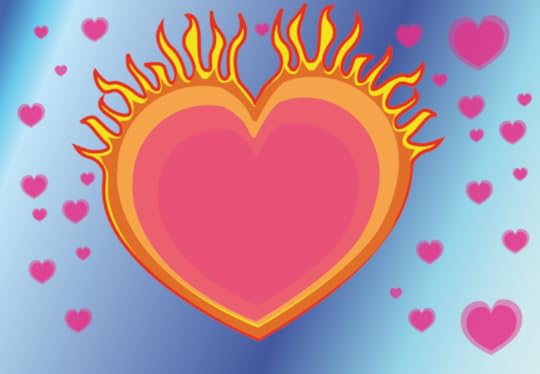
Yearning
Everyone has desires. It's a fact of the human condition that no matter what you've got, you want something else, or maybe something more. In order to make your characters real, they ought to long for something, many things even.
When I start a book, I always create a cast list (or character sheet) with basic descriptions of everybody. This is mostly so I can keep hair and eye color straight, but it is also useful for personality traits. Everyone has some desire, something pushing them to act as they do. Identify this in your characters and they will begin to come alive.
Real people have wants, wishes, desires. Real people yearn for things. They dream, they hope, they long. Incorporate desire into your character's personality, and it will be much easier for the real people reading your story to identify with it. If they can see themselves in any of your characters, you've done your job well.

Yearning
Everyone has desires. It's a fact of the human condition that no matter what you've got, you want something else, or maybe something more. In order to make your characters real, they ought to long for something, many things even.
When I start a book, I always create a cast list (or character sheet) with basic descriptions of everybody. This is mostly so I can keep hair and eye color straight, but it is also useful for personality traits. Everyone has some desire, something pushing them to act as they do. Identify this in your characters and they will begin to come alive.
Real people have wants, wishes, desires. Real people yearn for things. They dream, they hope, they long. Incorporate desire into your character's personality, and it will be much easier for the real people reading your story to identify with it. If they can see themselves in any of your characters, you've done your job well.
Published on June 18, 2014 05:30
June 17, 2014
Writing 101: Going Backwards Isn't Always Bad
In order to finish a manuscript so that it may become a book, writers have to push forward. Write, write, write until you get to the end and then you'll edit later. But it doesn't always work that way. Sometimes, you have to go back before you can go forward. And that's not always a bad thing to do for your books.
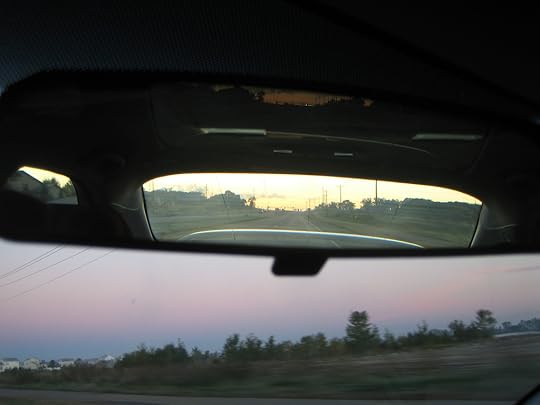
To the Drawing Board
There are times when authors have to push. You have to force the words to come. But there are times when the words should flow well, when it comes easily. And if you're not getting to that point, you're going to have to go back. You have to find out what's keeping you from moving forward.
That's what happened to me. I was completely excited about the story I was writing, but every time I tried to write it I just couldn't make the words come. I tried pushing myself. I tried skipping ahead. And then I realized the story didn't want to be told. Not the way I was telling it, anyway.
I had to go back. I took another look at my outline and figured out what was bothering me. The plot just wasn't right, so I had to rework it and re-write the stuff that wasn't working at all. It took a lot of time, but it's worth it to tell the story the right way.
When you just can't move forward with a story, go back and re-work it. Sometimes, that's the best possible thing you can do for the story you need to tell.

To the Drawing Board
There are times when authors have to push. You have to force the words to come. But there are times when the words should flow well, when it comes easily. And if you're not getting to that point, you're going to have to go back. You have to find out what's keeping you from moving forward.
That's what happened to me. I was completely excited about the story I was writing, but every time I tried to write it I just couldn't make the words come. I tried pushing myself. I tried skipping ahead. And then I realized the story didn't want to be told. Not the way I was telling it, anyway.
I had to go back. I took another look at my outline and figured out what was bothering me. The plot just wasn't right, so I had to rework it and re-write the stuff that wasn't working at all. It took a lot of time, but it's worth it to tell the story the right way.
When you just can't move forward with a story, go back and re-work it. Sometimes, that's the best possible thing you can do for the story you need to tell.
Published on June 17, 2014 05:30
June 16, 2014
Writing 101: Writing About the Weather
In a recent post, I wrote about the importance of setting in books. It wasn't until later that I realized I'd failed to touch on one important aspect of creating a great setting: weather. But I'm glad I did, because weather is an important enough aspect of writing to merit its own post.
And this is it.
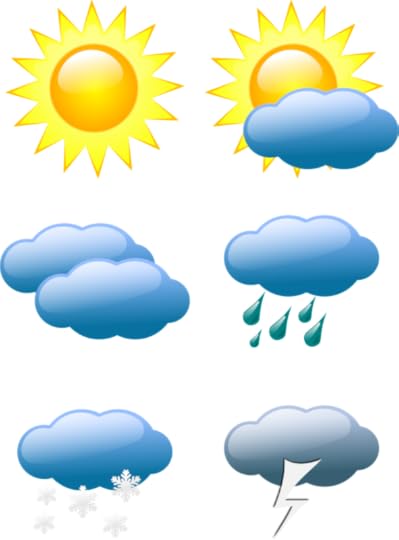
A Dark and Stormy Night
If you go looking for writing advice, you'll find lots of authors who say you should never open a book with the weather. I don't agree, and furthermore I find it to be bad advice. Great novels and movies have started with weather.
And even if you don't start with weather, it should always be included when it's appropriate to your setting. Weather is a part of everyone's life, so why not your character's?
The blazing, merciless heat of the sun. The terrible, stinging cold of the rain. Mosquitoes and flies and buzzards screaming overhead. Weather helps make the world what it is, and it will make your books feel much more real.
We've all been hot, or cold, or caught in the rain. We've all walked through snow or sweated it out under the sun. When you add this to your books, it becomes easier for readers to put themselves in your world. Your world feels more like their world. It feels much more real.
So write the weather, whenever and however you like. It will help your books come to life. Just remember to be careful when you're using the weather to orchestrate certain plot points. When it comes to weather, a light touch here and there is usually enough to set the scene.
And this is it.

A Dark and Stormy Night
If you go looking for writing advice, you'll find lots of authors who say you should never open a book with the weather. I don't agree, and furthermore I find it to be bad advice. Great novels and movies have started with weather.
And even if you don't start with weather, it should always be included when it's appropriate to your setting. Weather is a part of everyone's life, so why not your character's?
The blazing, merciless heat of the sun. The terrible, stinging cold of the rain. Mosquitoes and flies and buzzards screaming overhead. Weather helps make the world what it is, and it will make your books feel much more real.
We've all been hot, or cold, or caught in the rain. We've all walked through snow or sweated it out under the sun. When you add this to your books, it becomes easier for readers to put themselves in your world. Your world feels more like their world. It feels much more real.
So write the weather, whenever and however you like. It will help your books come to life. Just remember to be careful when you're using the weather to orchestrate certain plot points. When it comes to weather, a light touch here and there is usually enough to set the scene.
Published on June 16, 2014 05:30
June 15, 2014
Indie News: Win a Self-Publishing Award
Think your new book is one of the best of the year? Now's your chance to prove it. Shelf Unbound is holding its third annual self-publishing awards, and you can probably join in the fun.

Getting Recognition
The Shelf Unbound competition is open to all authors and publishers who create fewer than 5 titles per year. A large majority of indie authors fall into this criteria. Books in any genre can be submitted for reward recognition.
Even books that were entered last year are eligible for the contest, so the rules are pretty open. You can enter an unlimited number of books, but each one must be a separate entry. Authors from around the world are allowed to join the contest, but all books must be written in English. Books of any length can be entered.
Winners and runners-up will be picked by the Shelf Unbound editors, and will be featured in the December 2015 issue of the magazine.

Getting Recognition
The Shelf Unbound competition is open to all authors and publishers who create fewer than 5 titles per year. A large majority of indie authors fall into this criteria. Books in any genre can be submitted for reward recognition.
Even books that were entered last year are eligible for the contest, so the rules are pretty open. You can enter an unlimited number of books, but each one must be a separate entry. Authors from around the world are allowed to join the contest, but all books must be written in English. Books of any length can be entered.
Winners and runners-up will be picked by the Shelf Unbound editors, and will be featured in the December 2015 issue of the magazine.
Published on June 15, 2014 05:30



